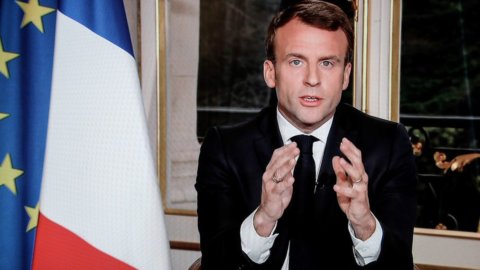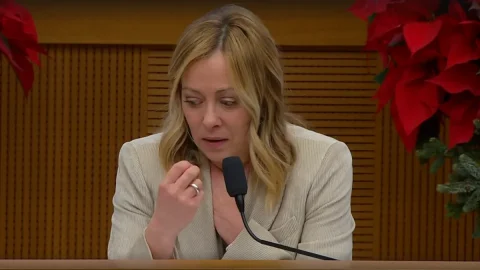The European Commission does not block the export of vaccines, but imposes new rules that will severely limit exports in order to speed up the vaccination campaigns of the Member States, all grappling with serious difficulties due above all to the lack of supplies. Parallel mount a new AstraZeneca case following the "discovery" of 29 million doses stopped at the Anagni plant, on which, however, the company has provided explanations.
THE NEW RULES ON THE EXPORT OF VACCINES
Brussels has introduced two new criteria on the basis of which it will be decided whether vaccines can be exported or not: reciprocity and proportionality. Simply put, it will be possible to block the export of vaccines (or components) to countries that do not export to the European Union and to non-EU countries that are far ahead with the administration of vaccines. The questions, underlines Brussels, will be evaluated on a case-by-case basis, but the goal is that the export requests do not pose a threat to the security of supply for the 27 EU countries. The initiative lifts the exemption for 17 countries, while the 92 low- and middle-income countries of Covax, the World Health Organization initiative that aims to bring vaccines to the poorest countries, remain excluded from the scope of the instrument.
“The EU is the only major OECD producer that continues to export vaccines on a large scale to dozens of countries. But the streets must run in two directions. This is why the European Commission will introduce the principles of reciprocity and proportionality into the Union's existing authorization mechanism. We must ensure timely and sufficient deliveries of vaccines to EU citizens. Every day counts”, commented the president of the Community Executive Ursula von der Leyen.
The Vice President of the EU Commission, Valdis Dombrovskis, instead stressed that the EU, to date, has approved 380 export requests out of 381 presented (the only exception is the block established by Italy on the export of 250 thousand doses to Australia) and that the new rules do not represent an export block.
The new limits are of particular concern to the United Kingdom, which however seems intent on respecting the principle of "reciprocity", sheltering itself from any blockages.
THE NEW ASTRAZENECA CASE
After a few hours of uncertainty, "the new AstraZeneca case" seems to be clearing up this morning following an inspection by the Nas at the AstraZeneca plant in Anagni, during which they were found 29 million doses of vaccine.
The inspection was sent directly from Palazzo Chigi, at the request of the European Commission which wanted to verify some lots present in the plant. Premier Mario Draghi, as explained in a government note, informed the Minister of Health, Roberto Speranza, who sent an inspection, which was held between Saturday and Sunday. The lots inspected were destined for Belgium and not UK as written in the morning by The print.
"It is up to the company (AstraZeneca, ed.) to decide where the doses go" stored in Anagni, "but we cannot help but notice that AstraZeneca is far behind with deliveries” to the European Union, said the vice president of the European Commission, Valdis Dombrovskis, during a press conference, specifying that the pharmaceutical company “had committed itself to delivering 120 million in the first quarter” while so far “less than 30 million have arrived ”. In detail AstraZeneca at the moment would have only delivered 16,6 million doses.
Through a press release released in the middle of the day, the company explained that the 29 million doses present in the Anagni plant "are not intended only for Europe, but also for Covax". “It is incorrect to describe them as a stock – continued AstraZeneca – The vaccine production process is very complex and time consuming. In particular, vaccine doses have to wait quality control approval after the filling of the vials has been completed”.
“There are currently no exports planned except to Covax countries. There are 13 million doses of vaccine waiting to send QC release to Covax as part of our commitment to supply millions of doses to low-income countries, the vaccine was manufactured outside the EU and brought to the Anagni plant to be filled in vials. The EU fully supports the provision of low- and middle-income countries through the Covax facility,” the company continued. "There are another 16 million doses waiting for QC release to be shipped to Europe. Nearly 10 million doses will be delivered to EU countries during the last week of March, the balance in April as doses were approved for release after quality control.





